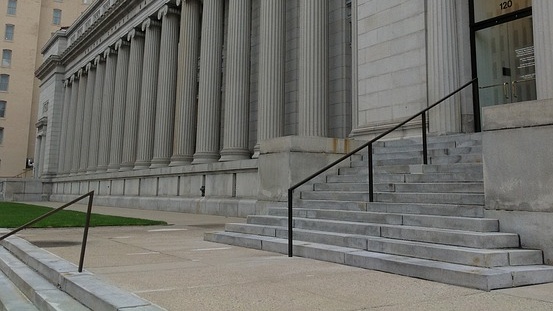Samoa’s first female prime minister-elect was barred from her swearing-in ceremony in an attempt to prevent her from taking office on Monday reports CNN.
Fiame Naomi Mata’afa of the Faith In One True God (FAST) party, appeared at the nation’s parliament building, only to find the doors locked in what she considered a “bloodless coup.”
“We have to fight this because we want to retain this country as a country that is democratically ruled, premised on the rule of law,” Mata’afa told New Zealand news outlet Newshub."We had every expectation that the convening of Parliament should happen."
“This is an illegal takeover of government,” Mata’afa added. “Because it’s a bloodless coup, people aren’t so concerned or disturbed by it.”
The 64-year-old moved forward with the ceremony on her own accord, as she and her allies pitched a tent and held an induction on the parliament lawn. Mata’afa’s predecessor, Tuilaepa Sailele Malielegaoi, prime minister for the last 23 years and leader of the Human Rights Party (HRP), refuses to capitulate.
“They have desecrated the grounds of parliament, and have made a ruckus in our hallowed grounds, they are trying to use force to open the House of Parliament,” Malielegaoi said as his opponent gathered for her impromptu ceremony, the Guardian reported.
Tensions between Mata’afa and the incumbent began on April 9, following a 25-25 vote in a tied race between the two parties. Subsequently, an independent lawmaker advocated for Malielegaoi’s reelection, only for the electoral commission to appoint another HRP candidate, citing failure to meet gender quotas.
Mata’afa appealed, and the Supreme Court ruled in her favor bringing the election to 26-25, according to the Associated Press.
Fiame Naomi Mataʻafa, is now the 1st female PM of Sāmoa. Her father was Fiame Mataʻafa Faumuina Mulinuʻu II, the 1st PM of Sāmoa. Her grandfather was Mata'afa Faumuina Fiame Mulinu'u I, head of the Mau pro-independence movement. Now thats a powerful lineage to carry. pic.twitter.com/P5fAD4bQmo
— Aᴅᴀᴍ Kᴇᴀᴡᴇ Mᴀɴᴀʟᴏ-Cᴀᴍᴘ (@adamkeawe) May 25, 2021
“Glory to our Father!” Fiame’s FAST Party wrote on Facebook after the court’s ruling, The Associated Press reported. “Now its time to get to work.”
On Saturday, however, head of state Tuimaleali’ifano Va’aleto’a Sualauvi II canceled Mata'afa’s appointment without explanation. When the Supreme Court overruled him on Sunday, the house speaker delayed opening parliament.
"They should begin to do a transitioning, so I think that's the next step, Mata’afa said to Newshub. “But it's not going to be easy."
Mata’afa is a former member of HRP, breaking ties with the group last year due to her disapproval of certain policies, including Malielegaoi’s plan for a Chinese-funded wharf.
Now in a crisis, the Pacific Island country’s democratic ideals are precarious as Malielegaoi is on a “power trip.”
“Samoa is a young democracy,” Iati Iati from Victoria University of Wellington said. “What you have then is a number of institutions whose power has not been accurately defined, so you have the head of state pushing the limits of his power, you’ve got the speaker coming in with his, you’ve got the courts asserting their power and you’ve got the prime minister saying he won’t listen to the courts.”
Foreign leaders also spoke out about the growing tensions in Samoa, a nation of only 200,000 residents, but appeared to take a neutral stance.
“We have faith in Samoa’s democracy and in their institutions,” New Zealand Prime Minister Jacinda Ardern said, according to The Washington Post.
Australian Foreign Minister Marise Payne encouraged “all parties [to] respect the rule of law and democratic processes.”
"There's no unrest but there is this feeling that something is brewing and that's the scary part for us," Lagipoiva Cherelle Jackson, reporter for the Guardian Pacific said. "We have no Prime Minister, we have no ministers of Cabinet, we have no sitting Parliament — that is scary and it's also unsettling."
According to Newshub, the United Nations is on standby if they need to intervene.
Auckland University Pro Vice-Chancellor Pacific, Damon Salesa, said that Samoa’s political climate is in critical condition.
"I think it's unclear what will happen next. It's not clear he [Malielegaoi] will simply concede even when another Prime Minister is sworn in and that's really troubling,” he said.
